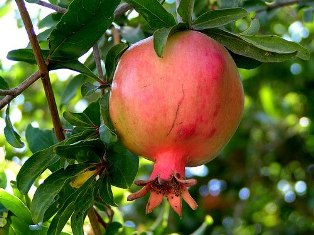|
Untitled Document
|
| |
Healthy Eating Guides |
| |
|
| |
Diet Vitamins |
| |
|
| |
|
|
|
|
|
|
|
|
| Vitamin B5 (Pantothenic Acid) |
|
|
|
|
|
| |
|
| |
|
| |
|
| |
 |
Mango |
| According to new research study, mango fruit has been found to protect against colon, breast, leukemia and prostate cancers. Several trial studies suggest that polyphenolic anti-oxidant compounds in mango are known to offer protection against breast and colon cancers. Fresh mango is a good source of potassium. 100 g fruit provides 156 mg of potassium while just 2 mg of sodium. Potassium is an important component of cell and body fluids that helps controlling heart rate and blood pressure. Further, it composes moderate amounts of copper. Copper is a co-factor for many vital enzymes, including cytochrome c-oxidase and superoxide dismutase (other minerals function as co-factors for this enzyme are manganese and zinc). Copper is also required for the production of red blood cells. It is also a very good source of vitamin-B6 (pyridoxine), vitamin-C and vitamin-E. Consumption of foods rich in vitamin C helps the body develop resistance against infectious agents and scavenge harmful oxygen-free radicals. |
|
| |
|
| |
|
| |
|
| |
 |
Passion fruit |
| The fruit is a very good source of dietary fiber. 100 g fruit pulp contains 10.4 g or 27% of fiber. Good fiber in the diet helps remove cholesterol from the body. vitamin A is also required maintaining healthy mucus membranes and skin. Consumption of natural fruits rich in vitamin-A, and flavonoids helps to protect from lung and oral cavity cancers. Fresh granadilla is very rich in potassium. 100 g fruit pulp has about 348 mg of potassium. Potassium is an important component of cells and body fluids, and helps regulate heart rate and blood pressure. Furthermore, granadilla is a very good source of minerals. Iron, copper, magnesium and phosphorus are present in adequate amounts in the fruit. |
|
| |
|
| |
|
| |
|
| |
 |
Pomegranate |
| The fruit is an also good source of antioxidant vitamin-C, provides about 17% per 100 g of daily requirement. Consumption of fruits rich in vitamin C helps the body develop resistance against infectious agents by boosting immunity. It is rich source of soluble and insoluble dietary fibers, providing about 4 g per 100 g (about 12% of RDA), which aid in smooth digestive and bowel movements. The fruit is suggested by nutritionists in the diet for weight reduction and cholesterol controlling programs. Regular inclusion of fruits in the diets boosts immunity, improves circulation, and offers protection from cancers. Regular consumption of pomegranate has also been found to be effective against prostate cancer, benign prostatic hyperplasia (BPH), diabetes, and lymphoma. Further, it is an also good source of many vital B-complex groups of vitamins such as pantothenic acid (vitamin B-5), folates, pyridoxine and vitamin K, and minerals like calcium, copper, potassium, and manganese. |
|
| |
|
|